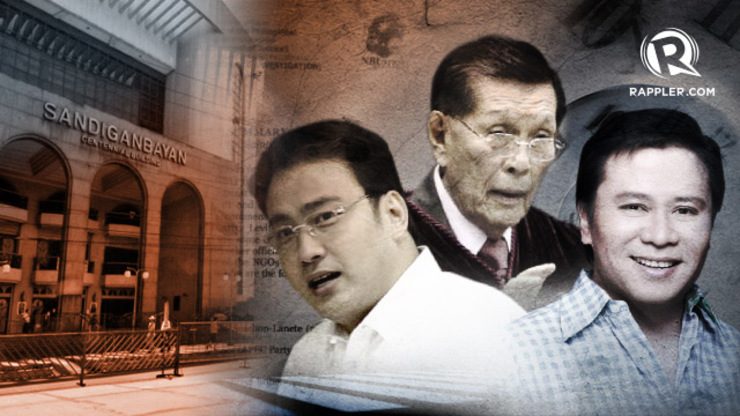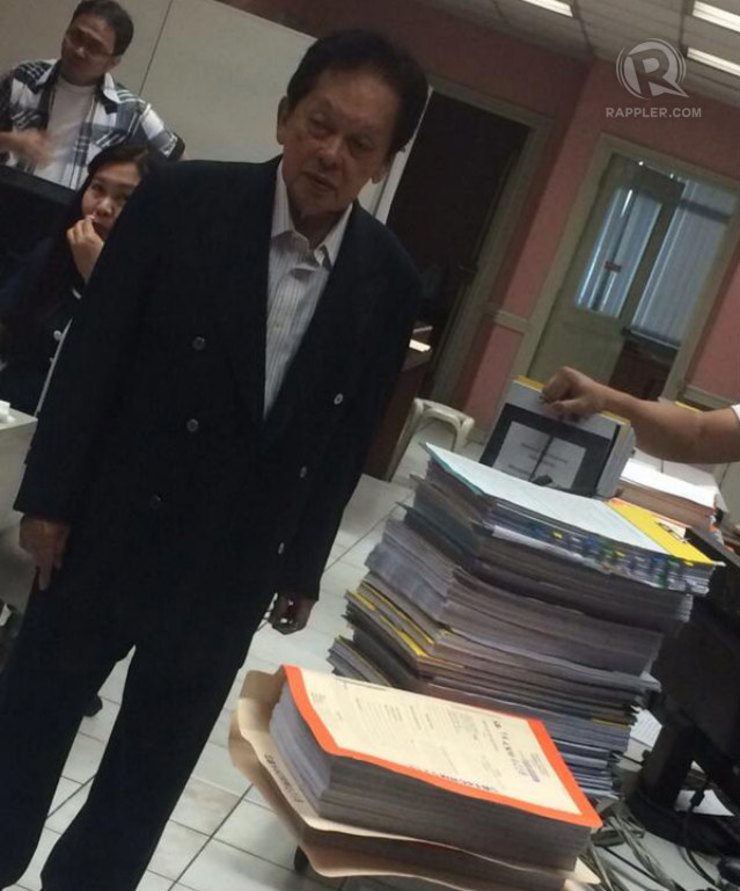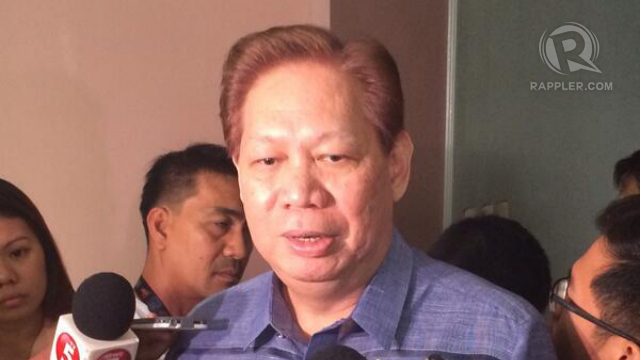SUMMARY
This is AI generated summarization, which may have errors. For context, always refer to the full article.

MANILA, Philippines – Are the plunder and graft charges against opposition senators Juan Ponce Enrile, Ramon “Bong” Revilla Jr, and Jose “Jinggoy” Estrada sufficiently firm to stand trial?
The anti-graft court Sandiganbayan will hear oral arguments of both the senators and the Ombudsman prosecutors on the issue.
Estrada and Enrile have filed their motions for judicial determination of probable cause on their plunder cases, while Revilla filed the same motion for both his plunder and graft charges.
A finding of probable cause by the anti-graft court can be expected 10 days after the accused file their information. Once the court determines there is enough evidence for indictment, an arrest warrant can be issued and the case can commence in court.
On Thursday, June 19, the court’s 1st division will hear the various motions filed by Revilla and his co-accused, mostly for the court to determine probable cause. Revilla also filed a motion to suspend proceedings, which the division will likewise hear.
The 1st division will listen to the oral arguments of Revilla’s former staff and co-accused Richard Cambe, and will likewise hear the motion of National Livelihood Development Center (NLDC) official Chita Jalandoni to reduce bail.
Alleged pork barrel scam mastermind Janet Napoles’ motion to determine probable cause, defer issuance of an arrest warrant, and suspend proceedings will also be heard on Thursday.
In her 35-page motion, Napoles argued she cannot be charged with plunder because she did not engage in any “conspiracy” to enrich lawmakers. She added that for a private individual like herself to be charged with plunder, conspiracy to defraud the government should be present. (READ: No conspiracy to enrich solons, Napoles tells court)
Napoles insisted there is no plunder if she, a private individual, was the one who “principally and ultimately benefited.” Plunder, she said, involves enabling a public officer and not a private citizen like herself to amass ill-gotten wealth.
Friday hearings
On Friday, June 20, the Sandiganbayan 3rd and 5th divisions will hear arguments of Enrile and Estrada, respectively.
The 5th division will hear Estrada’s motion on the issue of probable cause on his plunder case and Budget Undersecretary Mario Relampagos’ similar motion on his graft charges. (READ: Budget exec faces graft charges for PDAF releases)
The 3rd division will hear oral arguments on Enrile’s omnibus motion for the court to determine probable cause and for him to post bail, his supplemental opposition to the issuance of an arrest warrant and his motion to dismiss his plunder case. (READ: Ahead of arrest, Enrile pleads for liberty)
On Wednesday, June 18, lawyer Estelito Mendoza appeared before the Sandiganbayan to see for himself the documentary evidence the Ombudsman had against his client Enrile. (READ: Enrile hires lawyer of Marcos, Erap, Arroyo for PDAF case)
Upon his request, the stacks of documents were measured by the Sandiganbayan personnel. They measured 80 inches high or over 6 feet.
Mendoza refused to comment on the strength of the prosecution’s case, saying he has yet to read all the attached documents and pieces of evidence cited.
“May hearing kami. Manood na lang kayo sa Friday (We have a hearing. Just watch on Friday),” the veteran lawyer told reporters, smirking.

When will the senators be arrested?
In an interview with reporters, Sandiganbayan executive clerk of court Renato Bocar explained that all of the accused who have yet to post bail can be arrested once the court determines probable cause.
“Doon mismo sa resolution pag sinabi ng court na may probable cause, na may sufficient evidence to issue a warrant of arrest, doon mismo sasabihin na ng court na mag-issue na ng warrant of arrest,” he said.
(Right there in the resolution if the court says there is probable cause, that there is sufficient evidence to issue a warrant of arrest, right there, the court can order the issuance of a warrant of arrest.)
Following the resolution, the division clerk of court would prepare the arrest warrant for the signature of the justices.
The warrant will be sent to law enforcement agencies for implementation. These agencies are required to report to the court through a document called “return of warrant” where and when the arrest happened.
The return of warrant also includes where the suspects would be temporarily detained after the arrest. The court can assign or indicate which jail they will be transferred to.
Bocar said the place for temporary detention will depend on the law enforcement agencies.
“Halimbawa sa NBI (National Bureau of Investigation), malamang doon sa NBI detention center. Sa PNP (Philippine National Police), malamang sa PNP custodial center. Doon ipro-process ngayon yung mga accused na mga naaresto,” he said.
(For example in the NBI, of course it’s at the NBI detention center. At the PNP, it’s at the PNP custodial center. The accuse will be processed in their place of detention.)
Arrests can be expedited
Bocar said any of the accused who have yet to post bail can be arrested.
These are the accused who have graft charges but were not charged with plunder. Plunder is a non-bailable offense.
The bail for the graft charges was set at P30,000 per count.
As of the closing of the Sandiganbayan offices Wednesday, none of the 54 accused had posted bail.
Asked if the warrants of arrest could be issued on the day the hearings are set, Bocar said it is possible.
In 2013, the Sandiganbayan even issued an arrest warrant against former Agriculture Secretary Luis Ramon Lorenzo on the same day his case for graft was raffled to the court’s 1st division.
The court determined probable cause to indict Lorenzo hours after the raffle and issued the warrant afterwards.

Add a comment
How does this make you feel?
There are no comments yet. Add your comment to start the conversation.